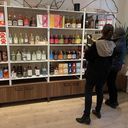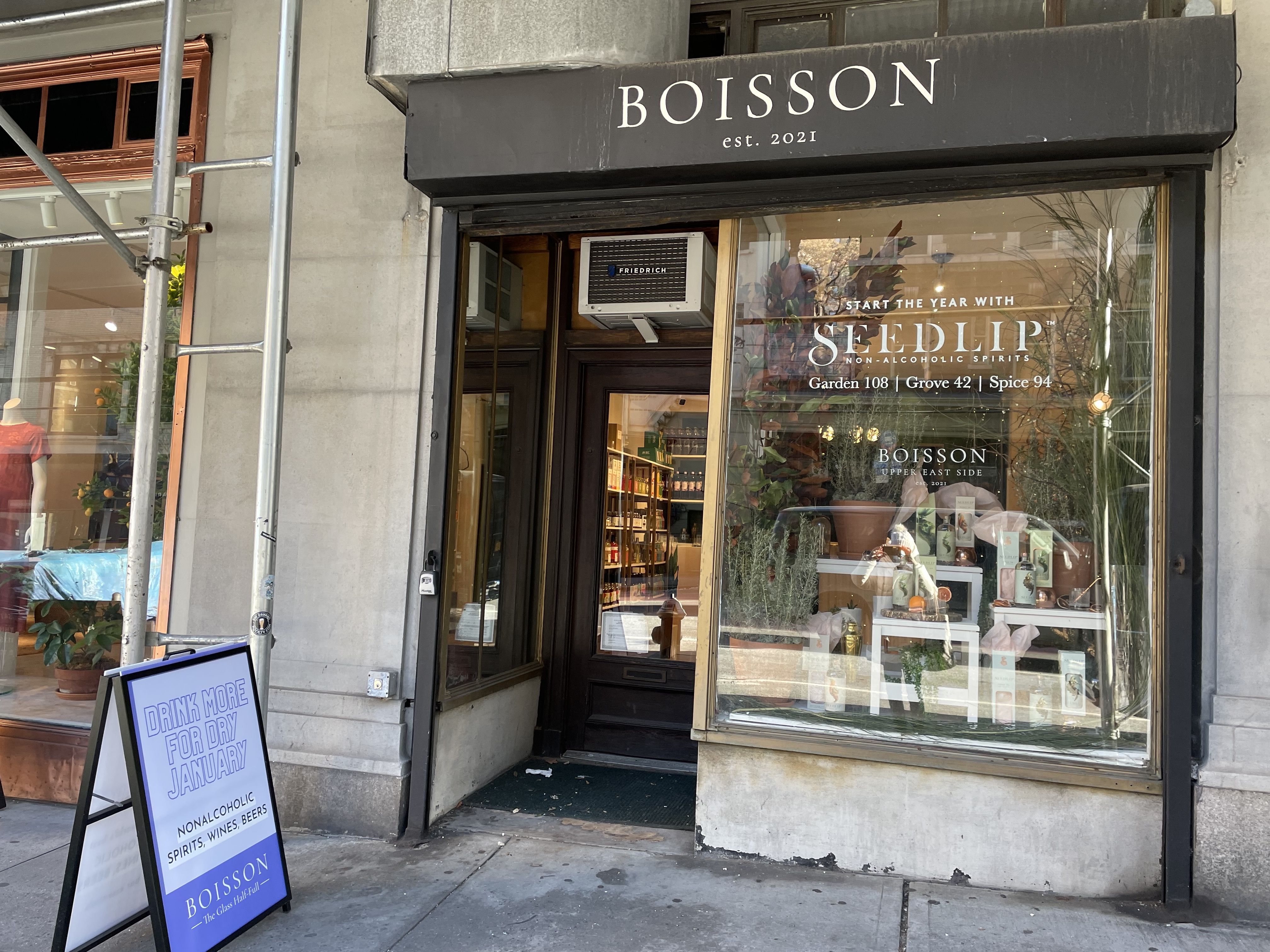Faux booze goes mainstream

Interest in non-alcoholic beer, wine and spirits has been soaring and is expected to far outlast "Dry January," the month when people typically swear off booze.
Why it matters: Companies big and small are doubling down on the mocktail market, which is being pitched as a healthful alternative for social drinkers who want to take a day off from their nightcap.
Driving the news: Sales of zero-alcohol drink substitutes used to be a blip on the radar screen, but now there are hundreds of brands — and even entire stores selling nothing but booze-free booze.
- Katy Perry just came out with a new line of alcohol-free aperitifs called De Soi, telling People magazine, "I'm 37, so I definitely can't drink like I was in my 20s."
- Dry January participation has grown to 19% of adults, driven by millennials, per Morning Consult.
- Heineken has a pricey sponsorship with Formula 1 to promote Heineken 0.0 — and reinforce the message that you have to be sober if you want to drive.
A startup called Boisson has just opened five stores in upscale New York City neighborhoods that only sell high-end spirits, wines and beers without alcohol. Nick Bodkins, CEO and co-founder, tells Axios that store traffic and e-commerce sales are rising steadily and he'll expand into other markets this year.
- Boisson sells 125 brands, including Thomson & Scott Noughty wines, Seedlip non-alcoholic spirits, Figlia aperitivos and Optimist non-alcoholic distilled spirits.
- "This market is absolutely exploding," Bodkins says. "This is essentially a category that did not exist, but will exist going forward."
- The pandemic prompted lots of people to examine their drinking habits and cut back, he said.
- Boisson calls itself a "judgment-free zone." "Most of our customers are taking a night off or a drink off — they’re not saying 'I'm never going to drink again," Bodkins said.

By the numbers: NielsenIQ reported in October that sales of non-alcoholic beverages had increased 33%, to $331 million, in the last year.
- "There are many health and wellness trends ... that are causing alcohol consumers to take a second look at their beverages," said Kim Cox of NielsenIQ .
- "While non-alcoholic beer has been available to consumers for many years, there are now more no/low alcoholic wines, spirits and beer options available than ever before."
Back story: Spiros Malandrakis of Euromonitor International, a market research firm, traced the rise of non-alcoholic spirits to 2016, "when the startup Seedlip began positioning alcohol-free adult beverages in a 'positive light' and playing up the lack of calories," Business Insider reported. (Diageo, which owns brands like Guinness, Ketel One and Tanqueray, purchased Seedlip in 2019.)
- The "sober curious" movement, which has its roots in a 2018 book by Ruby Warrington, emphasizes that teetotaling can bring about better sleep and greater clarity and focus.
Between the lines: Some products — like Katy Perry's and the line of booze substitutes from Curious Elixirs — boast that they contain "adaptogens," which are nontoxic plants said to help the body deal with stress.
What's next: Expect to see more high-end bars and restaurants — and prominent bartenders like Ivy Mix and Lynnette Marrero — proffering non-alcoholic drinks.
Editor's note: This story was originally published on Jan. 14.